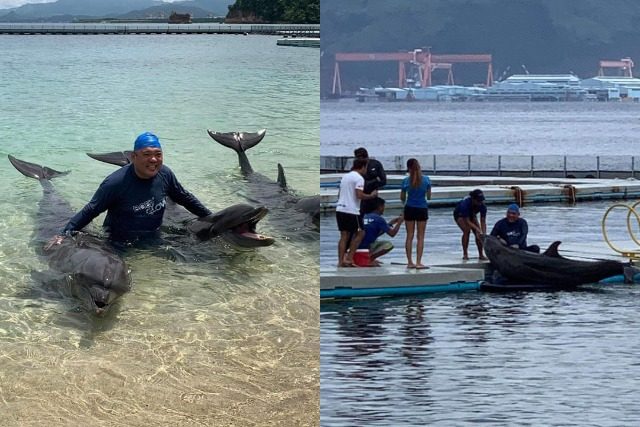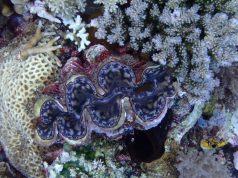
Presidential spokesperson Harry Roque was once again criticized for his Subic trip, this time, by environmental organizations that took issue with the captive endangered dolphins in the photos.
In a statement issued on Facebook on July 2, environmental group Earth Island Institute in the Philippines raised its concern on Roque’s patronage to Ocean Adventure Park in Subic, Zambales, which allegedly uses the marine animals for entertainment.
“There are businesses, most especially small and micro enterprises, that require the much-needed boost and support from the government. But instead, Secretary Roque seems to be favoring big businesses that support captive animal entertainment,” EII campaign spokesperson Mark Louie Aquino said.
Media ReleaseJuly 2, 2020Groups criticize Secretary Roque’s insensitive flaunting of patronage to marine wildlife…
Posted by Earth Island Institute Philippines on Thursday, July 2, 2020
The group also alleged that since 2005, five bottlenose dolphins, one sea lion and “Tonka”, the last false killer whale, have died in the facility of Ocean Adventure Park.
EII had also been calling for its management to release the captive dolphins for years.
“We urge the government to revoke the operating permit of Ocean Adventure, hold Secretary Roque to account, and free the remaining dolphins and marine mammals in the facility immediately. The ‘new, sustainable normal’ must now be to keep wild animals in the wild,” Aquino said.
Another environment group called Balyena, which conducts research about whales and dolphins in the country, bared on Facebook that dolphin captivity for entertainment shows has been a long-standing issue in the Philippines.
Sharing this because we do not support facilities keeping dolphins in captivity and dolphin shows. This has been a…
Posted by Balyena.org on Thursday, July 2, 2020
The organization also re-shared EIIC’s post which includes Roque’s photos with captive dolphins.
“Sharing this because we do not support facilities keeping dolphins in captivity and dolphin shows. This has been a long-standing issue in our country,” Balyena said.
“Despite all the laws in-place, somehow facilities like this remain operational. The ill-timed visit of a government official during a time like this and all other issues considered leaves us extremely disappointed,” it added.
Roque came under fire and was also poked fun at on Wednesday after photos of him at the ocean park taking a dip with the dolphins circulated on Twitter and Facebook.
READ: Photos of Harry Roque at Ocean Adventure deleted after drawing flak
The presidential spokesperson defended himself against the criticisms and noted that tourism is already allowed in Zambales after being declared as among the places under modified general community quarantine.
Roque also considered himself as an “authorized person outside residence” or APOR, which are front-liners required to work during the pandemic.
Laws that protect dolphins and other endangered animals
The EII said bottlenose dolphins, that Roque was seen “touching” in one of the photos, were among the marine species cited in the Convention on International Trade in Endangered Species of Wild Fauna and Flora or CITES that Philippine laws prohibit to possess.
The CITES is an international treaty between governments that aims to “to ensure that international trade in specimens of wild animals and plants does not threaten their survival.”
The Philippines has been among the 183 signatories since August 18, 1981.
Species of dolphins and whales, including bottlenose dolphins, are listed in Appendix II of CITES.
The Fisheries Code of the Philippines, which was amended by Republic Act 10654, meanwhile, states that all aquatic species listed in Appendix II of CITES should be protected and conserved.
This was particularly stated in section 102 (b), wherein:
“It shall be unlawful to fish, take, catch, gather, sell, purchase, possess, transport, export, forward or ship out aquatic species listed in CITES Appendices II and III if scientific assessments show that population of the species in the wild cannot remain viable under pressure of collection and trade.”




